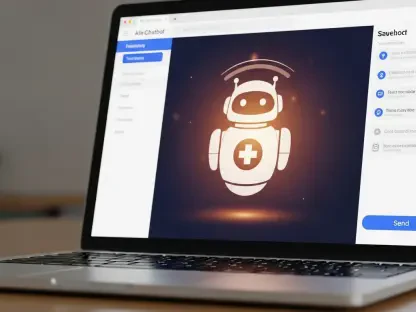Today, we’re thrilled to sit down with Faisal Zain, a renowned healthcare expert with deep expertise in medical technology. With years of experience in the development and manufacturing of cutting-edge medical devices for diagnostics and treatment, Faisal brings a unique perspective on how innovation is transforming patient care. In this interview, we dive into the world of maternal health, exploring groundbreaking solutions like AI-driven tools, the challenges of the U.S. maternal health crisis, and the future of personalized care. We’ll discuss how technology can bridge gaps in maternity services, enhance patient experiences, and support healthcare providers in delivering better outcomes.
How do you see technology, particularly AI, reshaping the landscape of maternity care in the U.S.?
I believe AI has immense potential to revolutionize maternity care by addressing some of the most pressing issues we face today. It can provide personalized support to expectant mothers, answering routine questions and offering guidance 24/7, which is critical when access to providers is limited. Beyond that, AI can streamline workflows for clinicians by automating administrative tasks like scheduling and reminders, allowing them to focus on direct patient care. Most importantly, it can help identify potential health concerns early and escalate them to medical professionals, which is vital in a country grappling with high maternal mortality rates.
What specific challenges in maternal health do you think AI tools are best positioned to tackle?
AI is particularly well-suited to tackle the gaps caused by provider shortages and uneven access to care. In the U.S., many women, especially in rural areas or under Medicaid, struggle to get timely consultations with OBGYNs. AI can act as a first layer of support, providing information and monitoring for issues like blood pressure or mental health concerns. It’s not a replacement for human care, but it can bridge the gap by ensuring women aren’t left without guidance during critical moments of their pregnancy journey.
Can you share your thoughts on how AI can personalize the pregnancy experience for patients?
Personalization is where AI truly shines. By learning from past interactions and understanding a patient’s unique needs, AI can tailor advice and communication in a way that feels more empathetic and relevant. For instance, it can remember a patient’s concerns about diet or stress and offer targeted suggestions or reminders. This kind of always-on, customized support can make a woman feel heard and supported, which is incredibly important during such an emotionally charged time.
How can AI tools help reduce stress for expectant mothers navigating their pregnancy?
Pregnancy often comes with a lot of uncertainty, and simple things like not knowing when to call a doctor or missing an appointment can add unnecessary stress. AI can step in by providing instant answers to common questions—say, about safe exercises or diet—and by managing logistics like scheduling appointments or sending reminders. This reduces the mental load on patients, letting them focus on their health rather than worrying about the next step.
In the context of the U.S. maternal health crisis, how do you think AI can address systemic issues like provider shortages or limited access to care?
AI can’t solve provider shortages directly, but it can optimize the time and resources of existing clinicians. By handling routine inquiries and flagging urgent cases, it ensures that doctors and midwives can prioritize patients who need immediate attention. For women in underserved areas or those affected by cuts to programs like Medicaid, AI can offer a lifeline by delivering basic education and monitoring tools through accessible platforms like mobile apps, helping to close some of the access gaps.
What are some of the key considerations for ensuring patient safety and data privacy when implementing AI in maternity care?
Safety and privacy are non-negotiable. AI systems must be built on clinically validated data to ensure the advice they give is accurate and safe—there’s no room for error when it comes to maternal health. On the privacy front, robust encryption and strict data handling protocols are essential to protect sensitive information. Patients need to trust that their personal health details won’t be compromised, and that means adhering to the highest standards of data security and regulatory compliance.
How do you envision AI supporting healthcare teams behind the scenes in maternal care settings?
AI can be a game-changer for clinical and operational teams by providing real-time insights into patient needs. For example, it can analyze patterns in patient data to highlight trends or potential risks, allowing staff to intervene proactively. It also integrates with workflows by automating tasks like charting or follow-up coordination, which frees up time for providers to build stronger relationships with patients. Essentially, it empowers teams to work smarter, not harder.
What is your forecast for the future of AI in maternal health over the next decade?
I’m optimistic that AI will become an integral part of maternal health, evolving to offer even more sophisticated support. I foresee tools that not only monitor physical health but also provide deeper mental health resources, predict complications with greater accuracy, and integrate seamlessly with wearable devices for real-time data. The ultimate goal is to create a system where every woman, regardless of location or income, has access to high-quality, personalized care—and I believe AI will play a central role in making that a reality.









